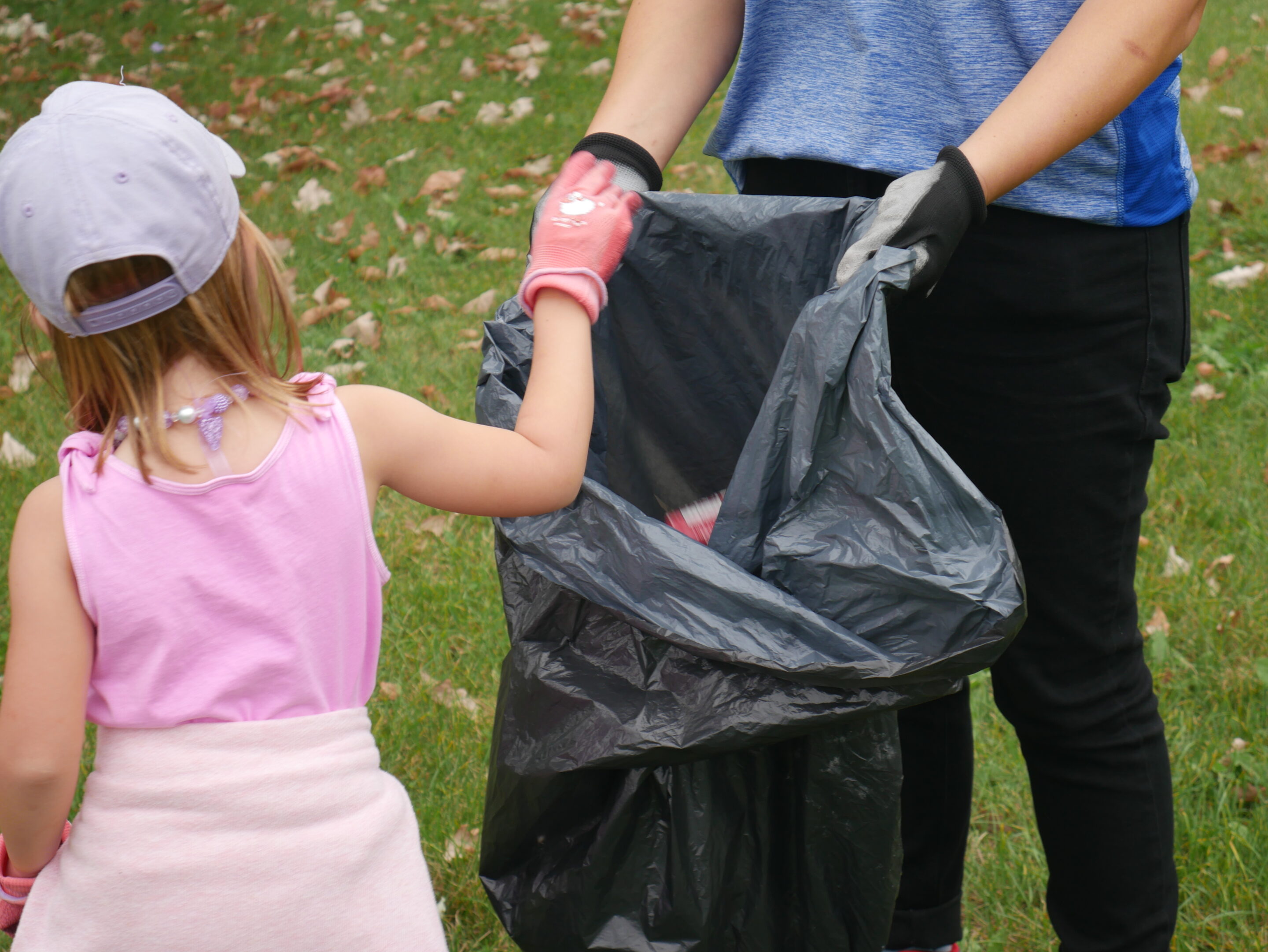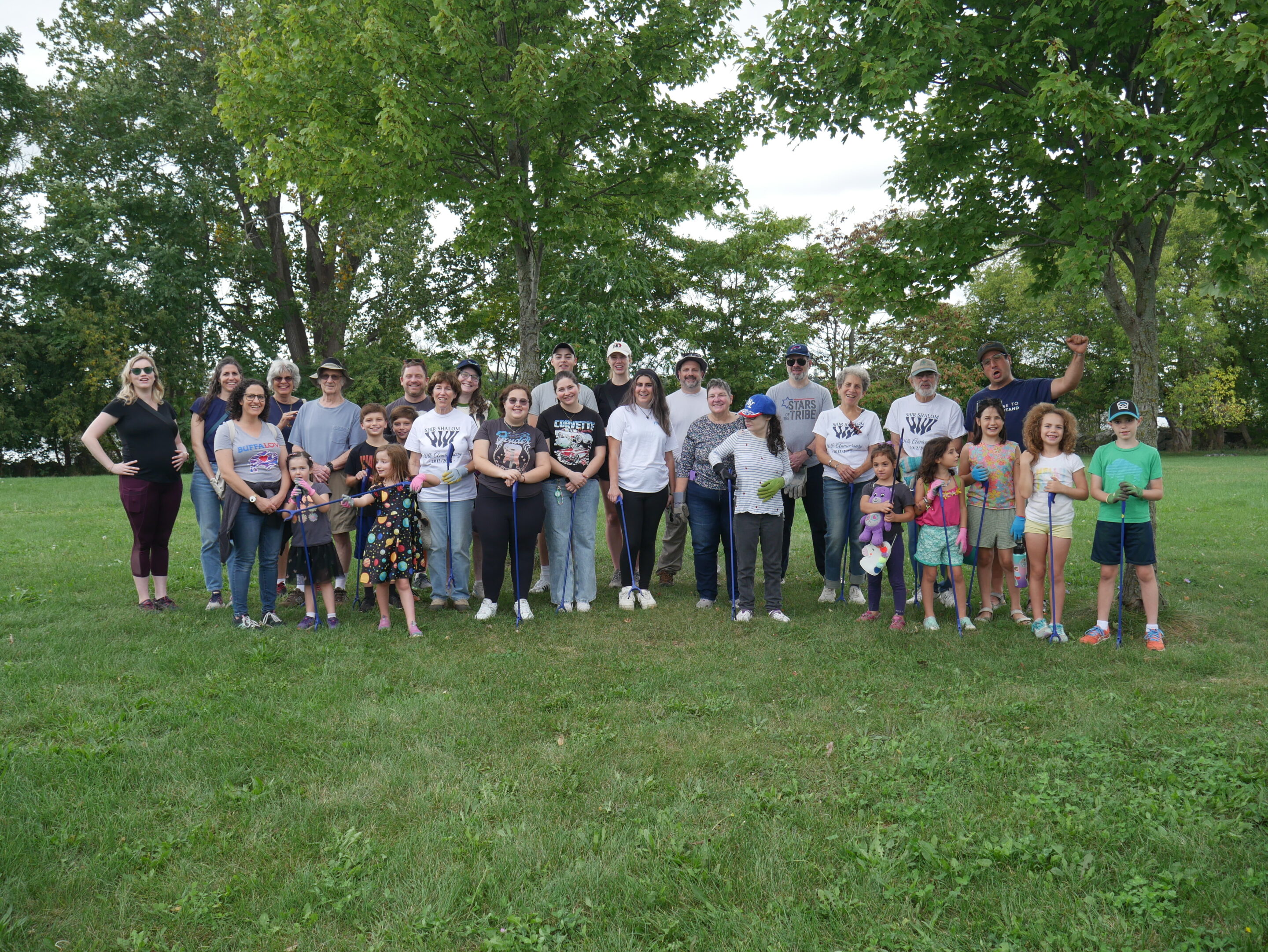By Rabbi Ed Rosenthal
A few years ago, I was the Hillel Rabbi of a small liberal arts college in St. Petersburg, Florida; and since it was in Florida, of course our Hillel had a Jewish Scuba Club called “Scubi Jew.” So, I was teaching a group of Scubi Jew students about Tashlich in preparation for Rosh HaShanah, I told them how we symbolically cast our “sins” into the water to begin the New Year with a clean heart. At that point, one of the students said: “Rabbi, there’s already more than enough human sin in the water. Why don’t we take some of it out instead?” “That’s a great idea” I said, “Let’s do a Reverse Tashlich!”
That year, five students participated in our first Reverse Tashlich cleanup of the mangroves and beach on campus and removed about 100 pounds of debris. It became a popular event and a couple years later I expanded the program and took it off campus into the general Jewish community. I’m proud of the fact that the Buffalo Jewish community was one of the first, outside of Florida, to participate in Repair the Sea’s Reverse Tashlich. We held our 7th Annual Reverse Tashlich in 2024, which saw over 3,000 participants from 283 communities in 30 countries, remove about 11 tons of debris from waterfront locations where they live as part of their High Holiday observance. From its humble beginnings in 2016, Reverse Tashlich has become a global event.
According to a Rochester Institute of Technology study, approximately 22 million pounds of plastic enter the Great Lakes every year.[1] And according to the Lake Erie Foundation, Lake Erie “has the second highest amount of plastic particles out of all the Great Lakes, and one of the highest concentrations of microplastics in the world.”[2]
In our tradition, the Mitzvah of Bal Tashchit is the prohibition against needless waste and destruction. This Mitzvah is not as widely known as Kashrut, Shabbat or Holidays, but it has been a fundamental aspect of the ethical character of the Jewish People for thousands of years. Yet today, most Jews do not even know about it. I would present that the vast amounts of single-use plastic that we humans use every day, like plastic water bottles, straws, plastic cutlery, snack bags, shopping bags etc., represent a blatant violation of the ethical Mitzvah of Bal Tashchit.
I have always believed that when Jews get involved in an issue, substantive change takes place. Unfortunately, with so many issues facing the Jewish community, especially after Oct. 7th and rampant antisemitism, the environment is very low on the Jewish communal agenda, and water and the marine environment are not even on the radar. It’s as if we’ve forgotten or haven’t even thought about the basic fact that without water we die; and the fact of the matter is that the Ocean, as we know it, is dying. And if the Ocean dies…we all die, Jewish or otherwise, because our planet cannot support life with a dead ocean.
There are too many issues negatively impacting the aquatic environment to list here, and frankly, it’s too late for us to be proactive to address them all anyway. It’s actually too late for us to even be reactive. What’s necessary for us to save the Ocean and waterways of the world now, is to be transformative.
What would a transformative Jewish Community look like?
How about if every Jewish institution in Buffalo stopped utilizing single-use plastic cutlery?
How about if every Jewish institution in Buffalo stopped buying and providing single-use bottles of water?
How about if instead of once a year, groups of Jews cleaned waterfront locations in Buffalo once a month?
Yes, Jews lead; and Jews make a substantive difference when we get involved in an issue. So, for all of you who live on the shores of a Great Lake, why not lead where it is truly necessary and where it will be for the good of everyone in Buffalo and for the world. There’s much to be done to repair the Sea and save the world… and it can start right here in Western New York.
Be on the lookout for more information about the 8th Annual Reverse Tashlich this fall. Any questions, please contact Rachel Beerman.
[1] https://www.rit.edu/news/researchers-study-plastic-pollution-great-lakes
[2] https://lakeeriefoundation.org/issues/plastic-contaminations/
Rabbi Ed Rosenthal is the Founder and CEO of Repair the Sea (Tikkun HaYam), which raises awareness and encourages action to address the many threats facing the aquatic environment, using a Jewish perspective to share its importance.



